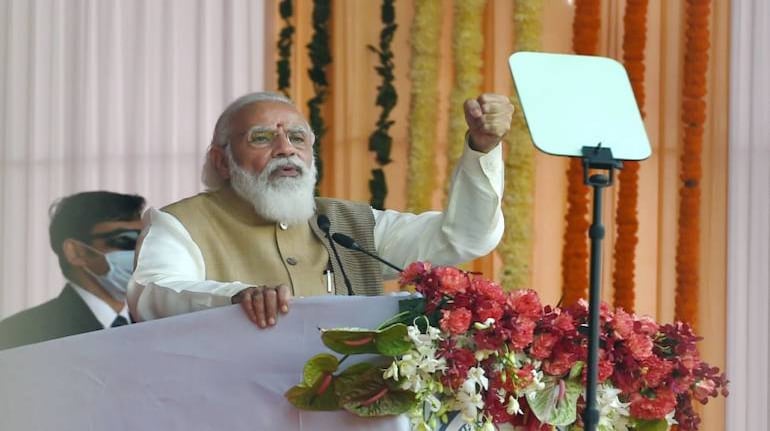An unresponsive bureaucracy is weighing down Modi’s push for reforms
Modi has reasserted that he wishes to go down in history as the harbinger of change. The bureaucracy needs to align its focus with that of the government’s agenda for change

Prime Minister Narendra Modi has been more than aware of criticism — by his rivals and admirers alike — that the more things change, the more they remain the same when it comes to our bureaucracy and the system.
Into his second term, he is not impervious to the talk that he is too dependent on an entrenched bureaucracy, and, as a result, he has not scored high on reforms despite big ideas.
With an unfulfilled human development agenda, Modi has been exasperated with bureaucrats from day one. But Modi now finds that his hopes of getting officials to be more proactive to make things work are shrinking. He needs to wield the stick more than the carrot if issues have to be dealt before they hit the ceiling.
Hence, Modi’s candid views in the Lok Sabha on February 10 underscored the urgency to undertake big-ticket changes may not have come as a surprise.
Defending the farm laws as much-needed reforms to boost India’s agriculture, Modi said this mindset of ‘status quo’ has also played havoc in stopping India’s progress and the younger generation wouldn’t wait long for change.https://6bf48fc0a8e290197f0c84a8b67fc8f2.safeframe.googlesyndication.com/safeframe/1-0-37/html/container.html?n=0
In October, Union Road Transport Minister Nitin Gadkari called out NHAI officials for inordinate project delays and a culture of inefficiency. In October 2019, at a meeting to review the government’s ‘Ek Bharat, Shrestha Bharat’ programme Modi told the top bureaucrats that they had “spoiled” his first five-year tenure and he would not allow them to spoil his second term in office. In the name of acting as checks and balances, bureaucrats have ensured there are enough caveats in place to thwart any move to free the private sector.
Modi has often conveyed that the bureaucracy will be given full protection for its bona fide mistakes because he cannot forget the consequences of the policy paralysis that had gripped the Congress-led United Progressive Alliance regime. But many officials are yet to come out of the safety of their ‘cocoons’.
Over the last four years, the PMO has got many officials to step out of these ‘cocoons’. The department of personnel introduced a new concept of running a 360-degree scrutiny of a bureaucrat’s career before promotion to secretary to the Government of India, the highest level for a civil servant. New training modules such as ‘Mission Karmayogi’ were introduced to break silos. Young IAS recruits were put through probationary stints even in the PMO.
Modi also paved the way for lateral entry into the top echelon of bureaucracy by recruiting nearly 40 officials at the level of joint secretary from the private sector. These officials were brought in to plug the talent deficit and encourage transformation in the work culture, which is usually hamstrung by red tape.
Knowing well that scepticism about the efficacy of such a move will trigger entropy, Modi seems fully determined to take this experiment to its logical end. Modi choosing to flag the attitude of the bureaucracy — by saying that IAS officers cannot run everything in the country — has to be understood in this context.
A government must not wait for a crisis to effect changes. That is why the Prime Minister also took pot-shots at those asking why the farm laws were introduced when farmers didn’t ask for them. Modi is clear that the government should be sensitive towards the people and take decisions proactively for the good of the country.
Modi’s assertion means that he cannot let the mandates of 2014 and 2019 go waste. For this his political rivals are accusing him of ‘siding’ with the private sector to drive the engine of the economy — for being a ‘suit boot ki sarkar’ to Congress leader Rahul Gandhi’s latest jibe of the government running on the principle of “hum doh hamare doh”.
Modi has reasserted that he wishes to go down in history as the harbinger of change. The bureaucracy needs to align its focus with that of the government’s agenda for change.
There is a political risk in such a move and the Prime Minister seems willing to take it—because if he succeeds, the rewards are guaranteed for all stakeholders.




